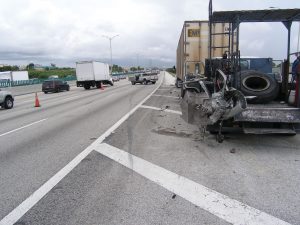 I have written many times before that maintaining Uninsured Motorist (UM)/Underinsured Motorist (UIM) coverage is an important way of providing a level of protection to self and others from the negative consequences of a serious motor vehicle accident. The coverage is outlined in Section 627.727, Florida Statutes.
I have written many times before that maintaining Uninsured Motorist (UM)/Underinsured Motorist (UIM) coverage is an important way of providing a level of protection to self and others from the negative consequences of a serious motor vehicle accident. The coverage is outlined in Section 627.727, Florida Statutes.
To the extent of policy limits, UM covers losses sustained by the insured, passengers, and family members caused by a party who fails to maintain Bodily Injury (BI) insurance. Hit-and-run and “phantom vehicle” scenarios also fall under UM coverage. UIM covers losses that exceed the limits of coverage available under the at-fault party’s BI insurance. Neither UM/UIM nor BI are mandatory coverages under Florida law.
A component of UM/UIM is stacked v. non-stacked coverage. These are the similarities and differences between the two:
Aggregating Policy Limits. When people think of stacked UM/UIM, aggregation is the first concept that comes to mind. Aggregation is the act of combing the coverage limits of two or more stacked UM/UIM policies. For example, if the insured owns two vehicles with $100,000 of per person stacked UM/UIM coverage on each, a combined $200,000 in coverage is available. If stacked coverage is maintained on one but not the other, even if the other has non-stacked UM/UIM, aggregation is not available.
UM/UIM Coverage Following the Owner. With one exception, both stacked and non-stacked UM/UIM follow the insured. The lone exception is when the non-stacked insured is occupying another owned vehicle. Coverage will be denied. The exception is allowed by s.627.727(9), Florida Statutes. Otherwise, both stacked and non-stacked coverage follow the owner, whether struck as a pedestrian 1000 miles from the insured vehicle, while riding a bicycle, or occupying a friend’s car. The stacked insured is covered even if occupying another owned vehicle.
UM/UIM Coverage Following the Vehicle. Both stacked and non-stacked UM/UIM cover the insured vehicle.
For more than 50 years, UM/UIM has been considered an important component of a system fabricated to provide a basic level of insurance protection to the public. This is why, in 1971, in the case of Mullis v. State Farm Mut. Auto. Ins., the Florida Supreme Court came down hard against an exclusion in a UM policy. (In Mullis, the insurance carrier sought to deny UM benefits to the son of the named insured, his father, with whom he was residing at the time he was injured by an uninsured motorist while operating a motorcycle.) Through its words, the Supreme Court cemented a mindset towards UM/UIM that remains influential still:
Continue reading
 What began as a product liability investigation, ended in a $2,000,000 personal injury settlement against the owner of an altered riding lawnmower (pictured).
What began as a product liability investigation, ended in a $2,000,000 personal injury settlement against the owner of an altered riding lawnmower (pictured). Florida Injury Attorney Blawg
Florida Injury Attorney Blawg










